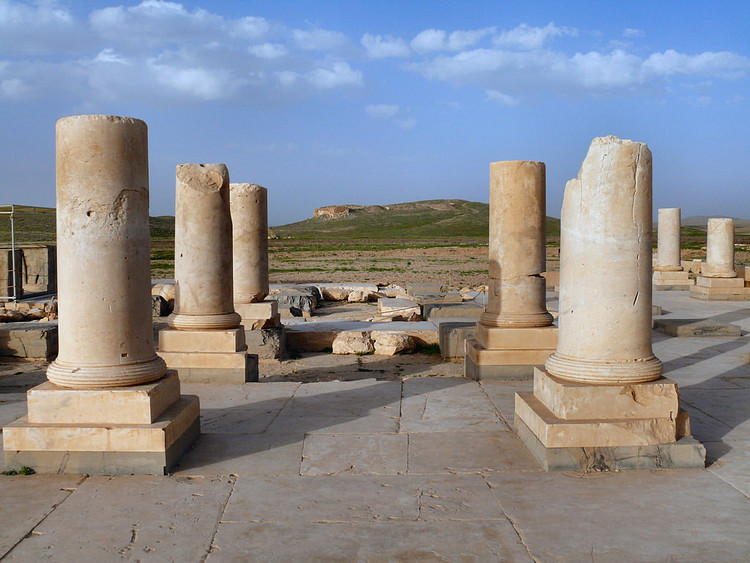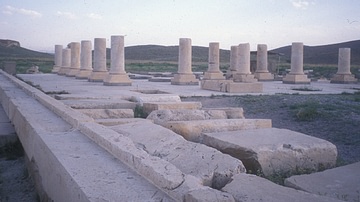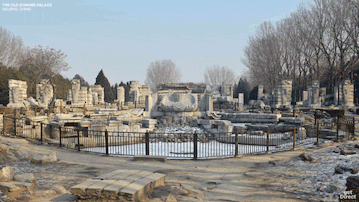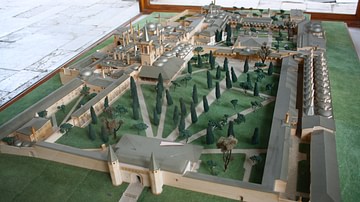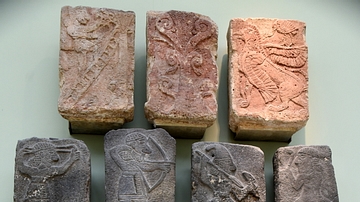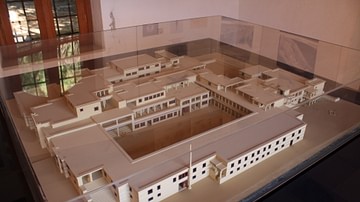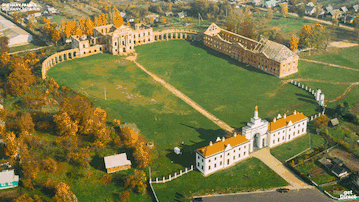Illustration
Cyrus the great's private palace at Pasargadae. This palace is one of the two first builded in the emerging capital of the founder of the new persian empire. Before Pasargadae, the persian who were nomadic shepperds, had no real architectural traditions of stone and columned palaces. Pasargade changed that, and shows the first attempts to set the persian achaemenian architectural style: Mesopotamian palatial formula associating 2 palaces, one for the audience and one private, first hypostyle halls with ionian greeks columns. The plan of the palaces were about simple and not yet symetrical, but within 2 generations of kings, the persian magnifiscence will raise summits of perfection and beauty at Persepolis and Susa.
Pasargadae's palaces were surounded by magnificent gardens, wich were known for having been created by Cyrus himself. The beauty of these gardens became legendary as athenian ancient scholar Xenophon himself reported in his Anabasis and his Cyropaedia. This statement was also repeated by Plato. Their name "Paeredysios" have even a legacy in our actual vocabulary as it evolved and gave the word "Paradise", showing us wich kind of heaven imaging was attached to these gardens.
Cite This Work
APA Style
dynamosquito. (2012, April 26). Pasargadae Palace. World History Encyclopedia. Retrieved from https://www.worldhistory.org/image/262/pasargadae-palace/
Chicago Style
dynamosquito. "Pasargadae Palace." World History Encyclopedia. Last modified April 26, 2012. https://www.worldhistory.org/image/262/pasargadae-palace/.
MLA Style
dynamosquito. "Pasargadae Palace." World History Encyclopedia. World History Encyclopedia, 26 Apr 2012, https://www.worldhistory.org/image/262/pasargadae-palace/. Web. 29 Jun 2025.
